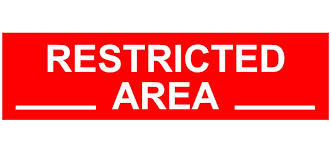An Eagle Board is a very special Board of Review held for the purpose of reviewing a scout on the requirements of Eagle Scout. The Board is typically scheduled for only one scout and generally occurs in the evening.
Similarities to a Typical Board[]
In many ways an Eagle Board is very much like a typical BOR. The scout should arrive early and in full Class A Uniform. He "marches in" and salutes the flag and then the examiners just like at a normal Board. He gives the same introduction as he typically would. He then is told to sit, take off his hat, and the examiners will proceed to ask questions.
Board Examiners[]
One of the more obvious differences with an Eagle Board is the composition of the Board Examiners. Instead of two examiners there can be from four to even nine examiners at the Eagle Board. This will always include a representative from Council and the Assistant Scoutmaster of Advancement. The rest of the Board will be comprised of other Assistant Scoutmasters, Troop Committee members, and recently one or two Man Scouts.
Requirements[]
The requirements for Eagle are different than any other rank and thus the Board's handling of the examination will also vary from the standard method. Overall, the general tone of an Eagle Board is more conversational than a standard BOR.
Letters of Recommendation[]
Before the actual Board even begins, the examiners will read through the assembled letters of recommendation that the candidate has assembled from coaches, employers, teachers, family, friends, etc. It can be useful to compare the letters with each other and with the examiner's own experience with the boy.
Pack Inspection[]
All Eagle candidates must bring a full backpack prepared for an overnight hike. One or more of the examiners will go through the pack to make sure that it contains all the necessary items. This inspection is often very thorough. Any attempts to cut corners will be noticed (empty water bottles, wrong type of spare batteries, etc.).
Eagle Project[]
The early conversation will inevitably turn to the Eagle Project. Examiners will ask a number of questions: What was it? How did you do it? Where did you get the funding? How many hours did you accumulate? Why dd you choose that project? What was your experience? Etc. Luckily this is one of the easiest things for candidates to talk about at their Board.
The Troop[]
Naturally the conversation will touch on the scout's experiences within the Troop. Examiners will ask about the scout's time in his various Positions of Responsibility, particularly memorable trips, and his accomplishments through Scouting. He might be asked about his life at home, in school, at a part-time job, or on a sports team.
The Future[]
A large part of the Board will be spent discussing the candidate's future. Most Paoli 1 Eagle candidates are seniors in high school who are either applying to colleges or in some cases have already decided where they are going. Scouts will be asked about what their plans for the future are including their education and career. As part of a scouts' citizenship obligation they will be asked about current events and politics. Most will also be asked about their future with the Troop and Scouting.
Other[]
In addition to all the above, the examiners might ask absolutely anything. A scout should be prepared to answer questions about Merit Badges they earned years ago, a pop quiz on knots, etc. Nothing is beyond the scope at an Eagle Board.
An Eagle Board is a test of the basic requirements for Eagle (21 Merit Badges, Eagle Project, etc.) but more than anything else it is a test of character. The Board is interested not only in seeing that the scout has gone through the program but that he has benefited and learned from it. Earning Eagle Scout is not about rushing through a check list but becoming a virtuous young man.
Picture of an Eagle Board[]

Restricted Picture